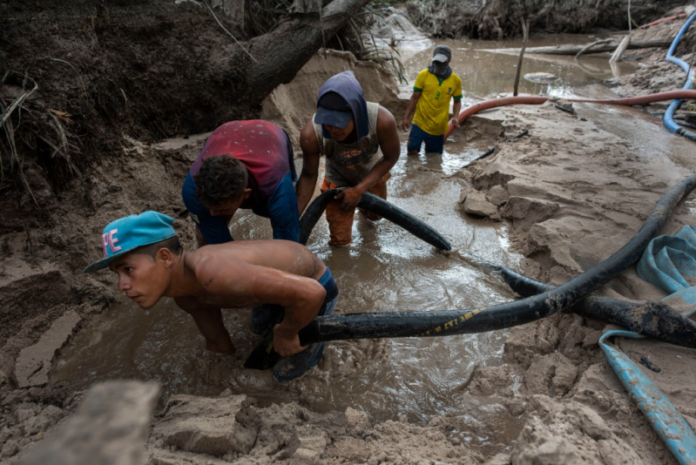Abstract
-
Venezuela’s environmental crisis intensifies, with grave concerns including oil spills, illegal mining, deforestation, and water shortages.
-
The government’s negligence and lack of transparency exacerbate the situation.
-
The crisis impacts the environment and human rights, particularly of Indigenous communities.
-
The country’s elite contribute to the degradation of protected areas.
-
Climate change amplifies all these problems.
The Unseen Environmental Catastrophe in Venezuela
In the heart of South America, Venezuela’s environmental crisis is reaching a boiling point. The Venezuelan Observatory for Political Ecology (OEP) has recently released a report detailing the country’s most pressing environmental issues, painting a grim picture of a nation on the brink of an ecological disaster.
The Oil Spill Epidemic
One of the most alarming issues is the increasing frequency of oil spills. Despite US sanctions, the Biden administration granted Chevron a six-month license to operate and export oil from Venezuela’s state-owned facilities in hopes of normalizing relations with the Maduro regime. However, this increased production has not been met with improved regulations. Instead, it has put more strain on Venezuela’s already crumbling oil infrastructure. The OEP reported at least 86 oil spills in the country last year, with the state of Zulia being the hardest hit. The spills have severely polluted Lake Maracaibo, forcing many fishermen to abandon their livelihoods or resort to subsisting on clams.
The Rainforest Ravaged by Mining
The Venezuelan government, desperate to mitigate the impact of sanctions, has heavily relied on the gold mining industry. This has led to the destruction of the country’s rainforests, particularly in the Orinoco Mining Arc. Despite international criticism, the government has doubled down on the mining arc’s importance. However, the OEP reports that as much as 90% of Venezuela’s mining activity is illegal, causing irreversible damage to the environment and posing a significant threat to Indigenous communities.
Deforestation: A Silent Killer
While mining is a significant cause of deforestation in Venezuela, unregulated cattle ranching, farming, and timber trafficking also contribute to the problem. The country is also suffering from a scarcity of natural gas, forcing households to resort to burning charcoal, leading to further deforestation. The OEP report indicates that between 60% and 70% of forests around certain communities have been cut down to make charcoal.
The Elite’s Role in Environmental Degradation
As Venezuela’s economy shows signs of modest recovery, the country’s elite is living lavishly, often taking trips to national parks and tropical resorts on the Caribbean coast. However, the lack of protections for wildlife in these areas makes elite tourism an increasingly harmful industry. The government’s failure to provide access to environmental impact reports further exacerbates the situation.
The Collapsing Waste Management System
Venezuela’s waste management system is on the brink of collapse. The country produces approximately 28,000 tons of waste daily, but only around 5% of it is recycled. The rest ends up in open-air dumps that often leak into rivers, contaminating drinking water and damaging local ecosystems.
The Scarcity of Potable Water
Access to clean drinking water is becoming increasingly scarce in Venezuela. Infrastructure issues, oil spills, and chemical contamination from mining have restricted water access for over 12 million people.
The Amplifying Effect of Climate Change
Climate change is exacerbating all of Venezuela’s environmental problems. Rising temperatures and unpredictable weather patterns have led to abnormal levels of rainfall, resulting in mudslides, flooding, and the destruction of farmland. These events, worsened by deforestation and erosion, displaced around 32,000 people in 2021.
Conclusion
Venezuela’s environmental crisis is a ticking time bomb, with the government’s negligence and lack of transparency fueling the fire. The issues of oil spills, illegal mining, deforestation, and water shortages are not only environmental concerns but also human rights issues, particularly for Indigenous communities. The country’s elite contributes to the degradation of protected areas, and climate change amplifies all these problems. Urgent action is needed to prevent an ecological disaster and protect the rights of the Venezuelan people.









